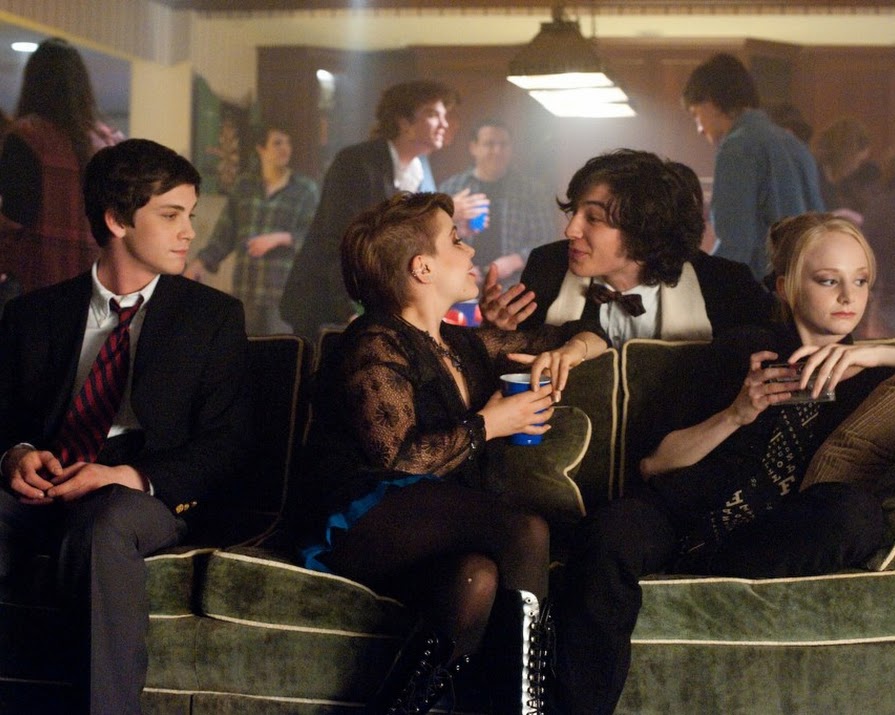
By IMAGE
16th Dec 2016
16th Dec 2016
Do they always find you in the kitchen at parties? CLAIRE O?MAHONY offers some tips for the socially unconfident this Christmas.?
There seems something Scrooge-like about admitting that you fear and loathe the social whirl the festive season brings. ?I just adore small talk,? said no one, ever, but for some people (I include myself here) the notion of a diary heaving with work-related events, gatherings with friends, family occasions and all the randomness that accompanies this time of year – and from mid-November onwards – seems like a huge challenge. Panic begins to escalate as potential pitfalls build in our heads: What if I don’t know anyone there? What if nobody talks to me? What if I’m inappropriately dressed? What if my poor grasp of current affairs is exposed? What if I can’t find the bathroom? What if my dull and limited personality repels people?
Of course, everybody’s fears are different and there are many reasons why someone might be apprehensive about social events. There’s good old-fashioned shyness, which affects most people at some time in their lives. Perhaps you’re an introvert, in which case it;s not that you are averse to socialising, but large crowds and networking are not to your tastes? you’d prefer the intimacy of a one-on-one conversation and you’re happier in your role as an observer rather than active participant. Then there’s social anxiety, a disorder that affects an estimated 7-8 percent of the adult population. This is characterised by a fear of being judged negatively by others, and being extremely self-critical of one’s ?public performance?. At its most acute, it can be debilitating and spills over into all aspects of the sufferer’s life and not just the socialising aspect. It can result in avoiding any interactions with strangers and can be extremely isolating, but it has been proven to respond well to cognitive behavioural therapy. If shyness is a general discomfort and self-consciousness, social anxiety has deeper roots and will more than likely benefit from professional help.
READ MORE: Party Ready Perfection: Part One
But if you’re sitting uncomfortably somewhere on the spectrum of social awkwardness, the good news is that party apprehension does not have to be a cross you must always carry. You may not become the Dorothy Parker of your generation, but you don’t have to be afraid.
STAND TALL
The confident person takes physical ownership of a room. The shy person retreats to take up as little space as possible. But studies have indicated that faking physical confidence can have beneficial mental effects. ?I think you can trick your body, at a neurophysiological level, to believe you are more confident than you actually are,? says Keating. ?Very simply, be mindful of your posture. Have what I call ?conscious posturing? – stand taller, bring your shoulders down and be aware of your breathing.?
DON’T SWEAT THE SMALL STUFF – LITERALLY
The physical manifestations of nervousness and shyness – blushing, stuttering, sweaty palms, etc – can make you feel even worse. As there’s little you can do about this, some perspective is required. ?If someone was blushing when they were introduced to you, you would first of all, very likely, not notice; and second of all, if you did notice it, it would cross your mind for a second and then you’d be onto the next thing,? says Liz Wright. ?All the times we perhaps tripped up in public, literally or metaphorically… We hold these in a file to beat ourselves up with, but nobody else is remembering this stuff. We really need to hold onto the fact that if we heard somebody stuttering, we would not judge that. It’s really important to realise that it isn’t a big deal for the other person.? And if your mind has a tendency to go blank in these situations, have a phrase to hand. ?Say, ?I can’t think of that on the spot, ask me later,?? advises Wright. ?Come out with something that is very human. People’s minds go blank all the time, and not always out of nervousness, but for a variety of reasons.”
LEAN ON CRUTCHES VERY GENTLY
It’s not to say you can’t have a drink. But, patently obvious is that overdoing the Dutch courage will not end well. ?If you drink, you lower your inhibitions. If you lower your inhibitions, the possibility of you making a social blunder, physical or verbal, is increased tenfold,? says Allison Keating. ?And the number one thing that people with social anxiety fear is that sense of embarrassing yourself.? A phone can seem like a lifesaver when you’re feeling at a loss, but as you’re checking Facebook updates, you’re also?preventing any chance of interacting with other revellers. ?In so much as it makes us feel less self-conscious about standing on the periphery, it also stops any chance of somebody approaching us,? says Liz Wright. ?If somebody passes by us and we’re standing there with the phone, they’re not going to start a conversation.?
READ MORE: The Shy Person’s Guide To Socialising: Part One
This article originally appeared in the December issue of IMAGE magazine.?























